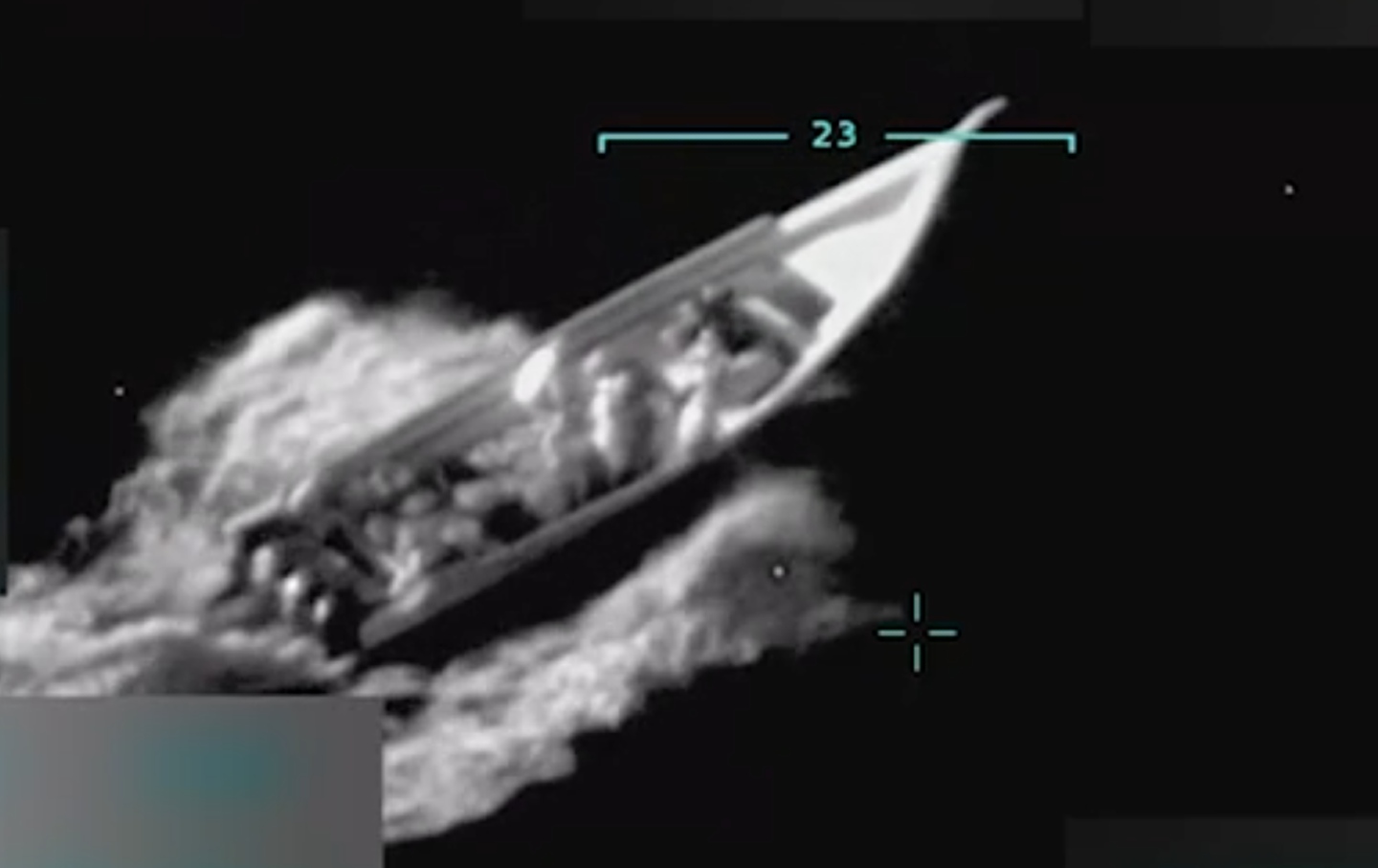October 28, 2025
The European Union has failed to create an alternative to Donald Trump. In matters of defense, geopolitical alignment and trade policy, it is increasingly subservient to the United States.
How much more can Europe give to appease Trump? Despite months of concessions on everything from trade to defense to technology regulation, relations between the United States and its traditional allies remain as volatile as ever.
In mid-October, the situation seemed to take a turn for the worse again when the White House announced that the US president would hold a new round of face-to-face talks with Vladimir Putin, this time under the auspices of Hungarian dictator Viktor Orban. The Budapest summit was quickly cancelled, and Washington decided to impose sanctions on major Russian energy companies. Yet once again, Brussels' charm diplomacy offensive has proven to be what it is: a teetering house of cards that may collapse.
At the end of July, European Commission President Ursula von der Leyen joined a deeply unbalanced trade deal with Washington designed to prevent an open trade war between the US and the EU. Many had hoped the agreement, signed at a Trump-owned golf course in Scotland and imposing a 15 percent surcharge on exports to the United States without EU retaliation, would mark the beginning of a lasting thaw in transatlantic relations.
But even this did not satisfy the US President's insatiable desire to keep Europe under his thumb. In another recent appeal, the White House demanded that Brussels exempt U.S. corporations from the bloc's environmental rules and due diligence standards, which it deemed a “serious and unjustified regulatory overreach.” position paper recently presented to EU officials. “We are not repealing any of our laws,” a commission spokesman said. said October 9. However, in another sign of retreat, EU leaders as reported is preparing a “checklist” to highlight how the bloc's ongoing deregulatory efforts could meet Trump's demands.
In addition, there is the ever-thorny question of Europe's modest technical regulations. Trump criticized the European Commission's decision in early September to fine Google nearly 3 billion euros for anti-competitive practices in the web advertising market. “My administration will NOT allow these discriminatory actions to continue,” US President wrote on Truth Social, joining the US tech sector in revolt against Brussels' modest attempts to regulate Silicon Valley.
At the moment the matter has reached a dead end, but preliminary decision On October 24, the commission found that Meta violated the block’s rules for content moderation on Facebook and Instagram. Regulators will do everything they can to slow down further financial sanctions, knowing that any action is likely to frustrate the White House. The commission is expected to unveil another package of roadmaps to “simplify” regulation in December, this time on digital and technology policy.
Europe may have no choice but to kneel before Trump. At the end of September in a magazine column Financial TimesJanan Ganesh offered something like an apology for Europe's capitulation. “If the price [US] Protectionism on the serious but ultimately non-existential issue of trade is kept in check, Europe must take this stance.” – Columnist wrote. According to Ganesh, this will be doubly justified if it serves as a “tactic leading to a more self-reliant future.”
This argument would be more persuasive if European compliance achieved what it was intended to achieve, rather than covering the full range of modern global fault lines. Months after the 12-day Israeli-Iranian war, European powers moved ever closer to supporting Washington, once again imposing sanctions against Tehran at the end of September. At the UN General Assembly, key European states such as France went ahead of Washington by recognizing Palestinian statehood. But exactly what that will mean is likely to be controversial as European capitals endorse Trump's 20-point Gaza peace plan. Outlining the future, it would seem indefinite occupation Palestinian coastal territory, even that deal appears increasingly fragile as Israel resumes its bombing campaign despite the return of remaining hostages held by Hamas.
Beyond strengthening security ties, Europe's capitulation can be attributed to a long list of reasons.
Internal divisions among the EU's 27 member states and institutional inertia in Brussels make serious autonomy policy extremely difficult. Italian Prime Minister Giorgia Meloni and her Hungarian counterpart Viktor Orban are MAGA allies, and are just two leading European figures who openly admire the US president. In European tradition, the common market and its regulatory framework are designed to allow the bloc to avoid a global race to the bottom on labor, health and environmental standards. But defending this ideal – and its limited implementation in law and policy – in the face of US pressure would be much easier if the European Union were not faced with its own libertarian rebellion from a wary corporate lobby.
Or take the commission president, who will be re-elected to a second term in 2024. Ursula von der Leyen is a pure product of the German establishment; her worldview is based on the belief that maintaining close ties with Washington is a necessity. In it Address on the state of affairs in the European Union In a Sept. 10 speech, she called her agreement with Trump “the best deal possible” that “provides crucial stability in relations with the United States at a time of great instability in the world.”
The key question in the coming months and years is whether this position will translate into political responsibility. This monthThe left and far-right opposition in the European Parliament lost a vote of no confidence in the EU chief executive, who criticized the trade deal with the US and Europe's unruly diplomacy. The European Parliament could also increase pressure on the commission to ensure full compliance with technology regulations.
The bloc's repeated – and often unrequited – concessions to Washington are beginning to astonish European opinion. One study published in September by the French Geopolitical Review Great Continent– based on interviews with respondents in France, Germany, Italy, Poland and Spain – suggests that most Europeans felt “humiliated” by the terms of the trade deal.
This view is not surprising, even if it does not lead to a coherent political alternative. In addition to cutting EU tariffs and regulatory rules, the bloc has agreed to buy 750 billion euros worth of US energy over the coming years. Supporters of von der Leyen's deal may note that the terms of the deal are vague. The EU Commission does not have the power to order EU firms to make specific investments in the US (the official pledge is $550 billion) and does not place orders for US energy products. But the core of the commission's approach is clear: Washington must be kept on board, no matter the cost.
Popular
“swipe left below to view more authors”Swipe →
Weapons are another bargaining chip. Since Russia's invasion of Ukraine, the relative fragility of the European defense industry has become a constant source of concern for the bloc's elites. Faced with growing calls to support domestic suppliers, EU leaders agreed to a modest 35 percent limit on military purchases outside the EU from the 150 billion euro rearmament fund that the commission approved this spring.
But this is likely to be an exception to the continued dominance of the US defense sector.
Between 2020 and 2025. 64 percent European military purchases were made from US suppliers – up from 52 percent in the previous five years. At the June 2025 NATO summit, European member states accepted Trump's demands that they spend 5 percent of GDP on defense, pointing to a possible windfall for U.S. contractors. this summer trade deal Europe promises to “significantly increase purchases of military and defense equipment from the United States.” Over the summer, European leaders also agreed to finance future US arms sales to Ukraine. The bloc's leaders are now vying to use frozen Russian assets in Europe to finance Kiev's future purchases of American weapons.
In Brussels and in autonomy-minded capitals such as Paris, there is a comforting conceit that rising global tensions may finally spark a long-awaited revolution in European policy-making. Even conscientious members of the EU's sacred technocracy can admit that the time has come for a radical departure from norms. In September 2024, their fears and hopes were best expressed by former European Central Bank President Mario Draghi, who published an authoritative report on the relative decline of European capitalism. Designed to support European corporations in the face of intensifying global competition, many of Draghi's 383 policy recommendations are hardly progressive. But he advocated collective EU borrowing to enable large-scale public investment.
A year later, and the policy results are zero, Draghi warned in September this year. “Inaction threatens not only our competitiveness, but also our very sovereignty,” the former Italian prime minister said last month.
Inertia is winning within the country. On the diplomatic front, the EU's treatment of Trump has only deepened the wound, leaving him with little alternative to submission.
More from Nation

Catherine Connolly, an independent on the left, won a landslide victory, promising to serve as “a moral compass in a world increasingly driven by profit and spectacle.”

The president's stated intentions to seize Bagram air base risk a departure from the détente of recent years.

A conversation with Robert Malley about Israel's actions in Gaza and the West Bank, why the US has failed to bring peace to the region, and his recent book Tomorrow will be yesterday.









:quality(85):upscale()/2025/10/28/847/n/49352476/3b0b36726901178026c1f6.08053908_.png?w=150&resize=150,150&ssl=1)

